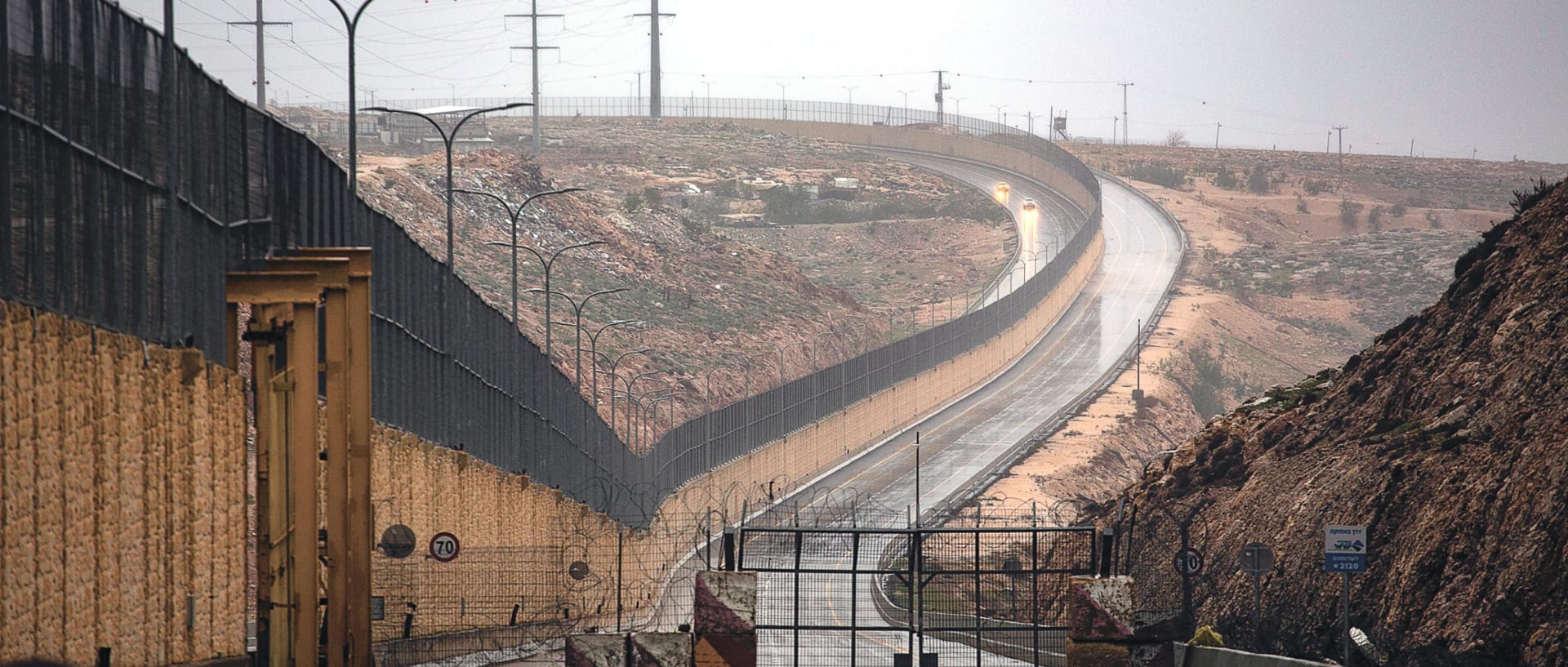Israel on Thursday opened a new highway road, dubbed the “Apartheid road”, in the occupied West Bank that features a large concrete wall segregating Israeli and Palestinian traffic. The western side of the road will be for Palestinian drivers only, while its eastern side will be used by Israeli settlers from nearby illegal Jewish settlements travelling to Jerusalem, as per a report by Israeli newspaper Haaretz.
The five kilometre road – route 4370 – will have two lanes that connect the settlement of Geva Binyamin to Route 1 – the Jerusalem-Tel Aviv highway to Jerusalem’s French Hill neighbourhood and a tunnel leading to the Mount Scopus. These two lanes will only be accessible to Israelis and Palestinians with valid entry permits to Jerusalem. The other two lanes will branch off and go around the east and south of the city without actually any access to Jerusalem. The newly inaugurated road has a 26-feet high, concrete, physical wall, topped with fencing, all along its length, dividing the Israeli lanes and the Palestinian lanes from each other.
Such kinds of segregated roads to keep Israeli and Palestinian commuters separated from each other, which are reminiscent of the roads in apartheid South Africa, are actually quite common in the occupied Palestinian territories of West Bank and East Jerusalem, but this is the first and only one so far which actually has an opaque, physical barrier.
The highway was built as a part of a planned ring road connecting the northern and southern areas of the West Bank, with construction beginning in 2005. Construction finally finished in 2017. The highway had stayed closed for all these years owing to a dispute between the Israeli army and the police over who would man the checkpoints. Critics of the road say that Israel will begin its illegal settlement construction in the E1 area, east of Jerusalem, once the road is fully completed. Settlement construction in E1 has not taken place in recent years due to severe international pressure and scrutiny on the contentious status of the city of Jerusalem, while in contrast, Israeli settlements have multiplied in the West Bank by over 20 percent.
Palestinians have also expressed concern that if construction was to take place in E1, it would result in the splitting of the West Bank into two, thereby making a viable, contiguous, independent Palestinian state impossible. The new highway was met with condemnation in Palestine, from human rights groups as well as from the Palestinian leadership. PLO (Palestinian Liberation Organisation) Executive Committee member Ahmad Majdalani said that, “This is an Israeli example of apartheid and racist separation that once existed in South Africa. Any Israeli who believes in democracy should feel ashamed about this new road.”
The Palestinian authority (PA) released a statement saying that the apartheid road poses a challenge to the credibility of the international community. “It’s a shame on the international community to see an apartheid regime being established and deepened without doing anything to stop it,” the statement said. PA Transportation Ministry Spokesman Mohammad Hamdan deemed the road unacceptable for Palestinians, adding that all roads in the state of Palestine should be accessible to Palestinians, and that this road is a stark example of Israeli discrimination against the Palestinian people.
Israel’s only response was to claim that the new highway would relieve the pressure on existing highways during periods of high congestion by significantly distributing the traffic more evenly.





